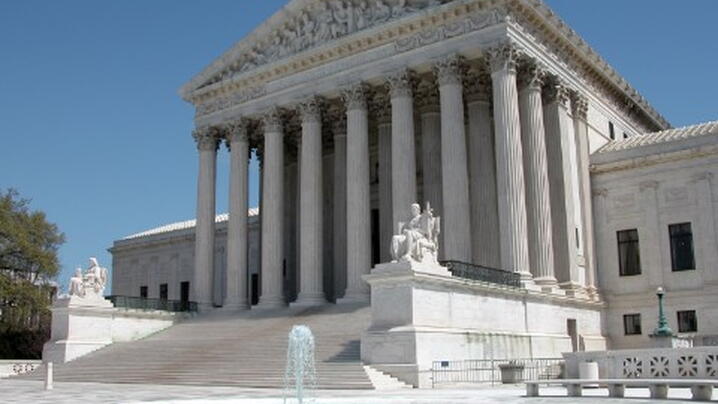
In 303 Creative v. Elenis the U.S. Supreme will decide whether applying a public-accommodation law to compel an artist to speak or stay silent violates the Free Speech Clause of the First Amendment. Numerous states and local governments have adopted laws and ordinances, like the one at issue in this case, that prohibit discrimination on the basis of sexual orientation.
Lorie Smith owns 303 Creative LLC where she designs websites. She wants to start creating wedding websites, but she doesn’t want to create websites that celebrate same-sex marriages. And she wants to explain on her website that doing so would compromise her Christian beliefs.
Colorado’s Anti-Discrimination Act’s (CADA) “accommodations clause” prohibits public accommodations from refusing to provide services based on sexual orientation. CADA’s “communications clause” prohibits communicating that someone’s patronage is unwelcome because of sexual orientation.
Over a lengthy dissent, the Tenth Circuit ruled that CADA doesn’t violate 303 Creative’s First Amendment free speech rights.
According to the Tenth Circuit CADA’s “accommodations clause” compels speech by forcing 303 Creative to create websites “and thus, speech” that it would otherwise refuse to create. It is also, according to the Tenth Circuit, a content-based restriction on speech because 303 Creative “cannot create websites celebrating opposite-sex marriages, unless they also agree to serve customers who request websites celebrating same-sex marriages.”
The Tenth Circuit then applied strict scrutiny to the “accommodations clause” and concluded it passed.
According to the Tenth Circuit: “Colorado has a compelling interest in protecting both the dignity interests of members of marginalized groups and their material interests in accessing the commercial marketplace.” Likewise, per the Tenth Circuit, the “accommodations clause” is narrowly tailored to Colorado's interest in ensuring “equal access to publicly available goods and services.” “Excepting [303 Creative] from the Accommodation Clause would necessarily relegate LGBT consumers to an inferior market because 303 Creative’s] unique services are, by definition, unavailable elsewhere.”
Regarding CADA’s “communications clause” the Tenth Circuit agreed with the district court that it doesn’t violate the First Amendment because “Colorado may prohibit speech that promotes unlawful activity, including unlawful discrimination.”
The dissent disagreed with the majority’s application of strict scrutiny to CADA’s “accommodations clause.” Regarding compelling interest, according to the dissent, “ensuring access to a particular person's unique, artistic product-as the majority holds . . . is not a compelling state interest.” Regarding narrow tailoring the dissent pointed to what it described as numerous “reasonable, practicable alternatives Colorado could implement to ensure market access while better protecting speech,” including “exempt[ing] from CADA artists who create expressive speech about or for weddings.”
This is the third time the Court will try to resolve whether First Amendment free speech rights effectively create an exception to a non-discrimination statute or ordinance where the speaker objects on religious grounds to same-sex marriage.
In Masterpiece Cakeshop, Ltd. v. Colorado Civil Rights Commission (2018) the Supreme Court was supposed to decide whether the First Amendment allowed a cake maker to refuse to make a wedding cake for a same-sex couple, as required by CADA. The Supreme Court instead held the Colorado Civil Rights Commission violated the First Amendment’s Free Exercise of Religion Clause by failing to give full and fair consideration to the cake maker’s religious objection.
Last term in Fulton v. City of Philadelphia (2021) the Supreme Court was supposed to decide whether the City of Philadelphia could refuse to contract with Catholic Social Services (CSS) to certify foster care parents because CSS wouldn’t work with same-sex couples in violation of the city’s non-discrimination ordinance. Without addressing the Free Speech Clause, the Court held Philadelphia’s refusal violated the First Amendment’s Free Exercise Clause.
New, Reduced Membership Dues
A new, reduced dues rate is available for CAOs/ACAOs, along with additional discounts for those in smaller communities, has been implemented. Learn more and be sure to join or renew today!
